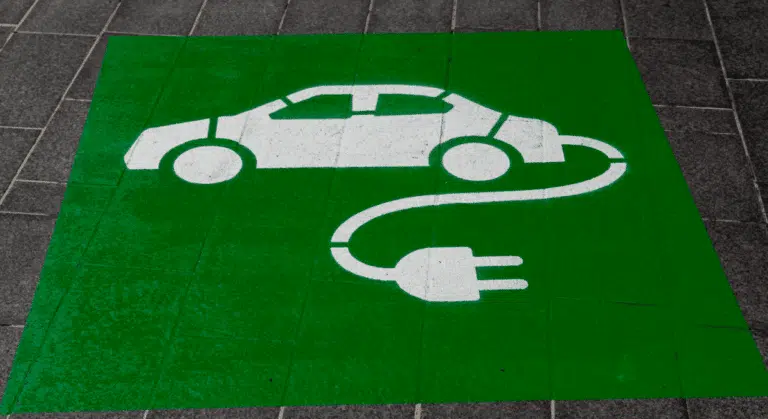His second engine of the Land Rover breaks down and he decides to take the case to court

The story of an unfortunate owner of a Land Rover Discovery 5 leads us to question the durability and reliability of these vehicles. After experiencing the failure of his original engine, a new engine was installed which, after covering 45,000 kilometers, also failed completely. This persistent technical problem has led the customer to take legal action against the brand, reflecting the frustration and discontent experienced by several users with the defective Ingenium engines of Land Rover.
An owner of a Land Rover Discovery 5 from 2017 faces the bitter experience of having not just one defective engine, but two. After replacing the original engine due to a serious breakdown, the new engine also broke down in a short time. Frustrated by the lack of effective response from the manufacturer, the customer has decided to take the matter to court, highlighting a problem that seems to be more widespread than initially thought.
First Contact: Purchase and Start of Breakdowns
It all began when the customer decided to acquire a Land Rover Discovery 5 in 2019. Initially, the vehicle promised to be the perfect example of stability and performance characteristic of a luxury car. However, reality soon crumbled when, after a few months of use, the vehicle’s engine began to show signs of mechanical problems. With less than 100,000 kilometers driven, the engine failure was attributed to a lack of compression in one of the cylinders.
Engine Replacement and New Disappointment
In an attempt to resolve the problem, the owner took the car to the official Land Rover workshop. There, after verifying that the customer had strictly followed the brand’s maintenance policy, he was offered a motor replacement with a significant 80% discount. Although this might have seemed like a temporary relief, the new engine also turned out to be problematic. At 45,000 kilometers, the engine failed completely again, leaving the customer with no more options.
The Legal Path
Tired of the lack of durable solutions from the brand, the owner has decided to take legal action against Jaguar Land Rover. The lawsuit alleges a persistent manufacturing defect in the Ingenium engines, responsible for both catastrophic failures. Although it has not yet been officially admitted, the customer hopes that this action will serve as a global alert for other affected owners.
Legal Precedents and Hopes
In other countries, class actions have already been filed for similar issues, especially in the United Kingdom. Likewise, in Spain, a recent court ruling forced the brand to repair an out-of-warranty engine due to a manufacturing defect. This suggests that the possibilities of success for this case are not unfounded. The hope is that the ruling sets a precedent that can be applied internationally.
Impact on the Owner Community
The case is generating widespread interest among groups of Land Rover users who have also experienced similar problems. Discussion forums and social media are filled with testimonies from disappointed owners talking about multiple breakdowns, engine replacements, and the ongoing difficulties they face with their vehicles from the prestigious brand.
For more information on how to reduce costs in such situations, you can visit strategies for companies looking to reduce their fuel expenditure. Additionally, if you want to read impactful examples of adverse situations and how they have been faced, we invite you to explore epic explorations: between conflicts and looters.
Analysis of the Legal Conflict: The Case of Land Rover Engines
The development of the case surrounding the mechanical issues of the Land Rover has captured attention not only for the scale of the technically complex breakdowns but also for the legal implications that have been unfolding in several countries. This customer, after experiencing two failed engine replacements in a relatively short period of just over 100,000 kilometers, has ultimately decided that court is the last viable option to seek a fair repair.
The fact that this is not an isolated case but part of a recurring pattern with other Land Rover vehicle owners adds a denser layer of complexity. The frustration and disillusionment of customers facing the lack of an adequate solution from the manufacturer translate into legal actions that have the potential to create precedents for others affected. In some cases, as has already happened in Spain, courts have ruled in favor of the consumer, forcing the brand to take responsibility for repairing or replacing the defective engines.
The decision to take the case to court is an assertion of consumer rights, seeking justice after months of frustration and growing distrust towards the brand. The possibility that this lawsuit could succeed would open the door to a broader recognition of these issues, not only in the plaintiff’s country but also internationally, as evidenced by the already existing class action in the United Kingdom.
This scenario illustrates the importance of legal backing in situations where the consumer feels defenseless against large manufacturers, highlighting the need for effective consumer defense mechanisms, especially in such a technical and complex industry as the automotive one. The Land Rover case not only underscores the failures of a specific brand but also draws attention to the importance of accountability throughout the sector.



